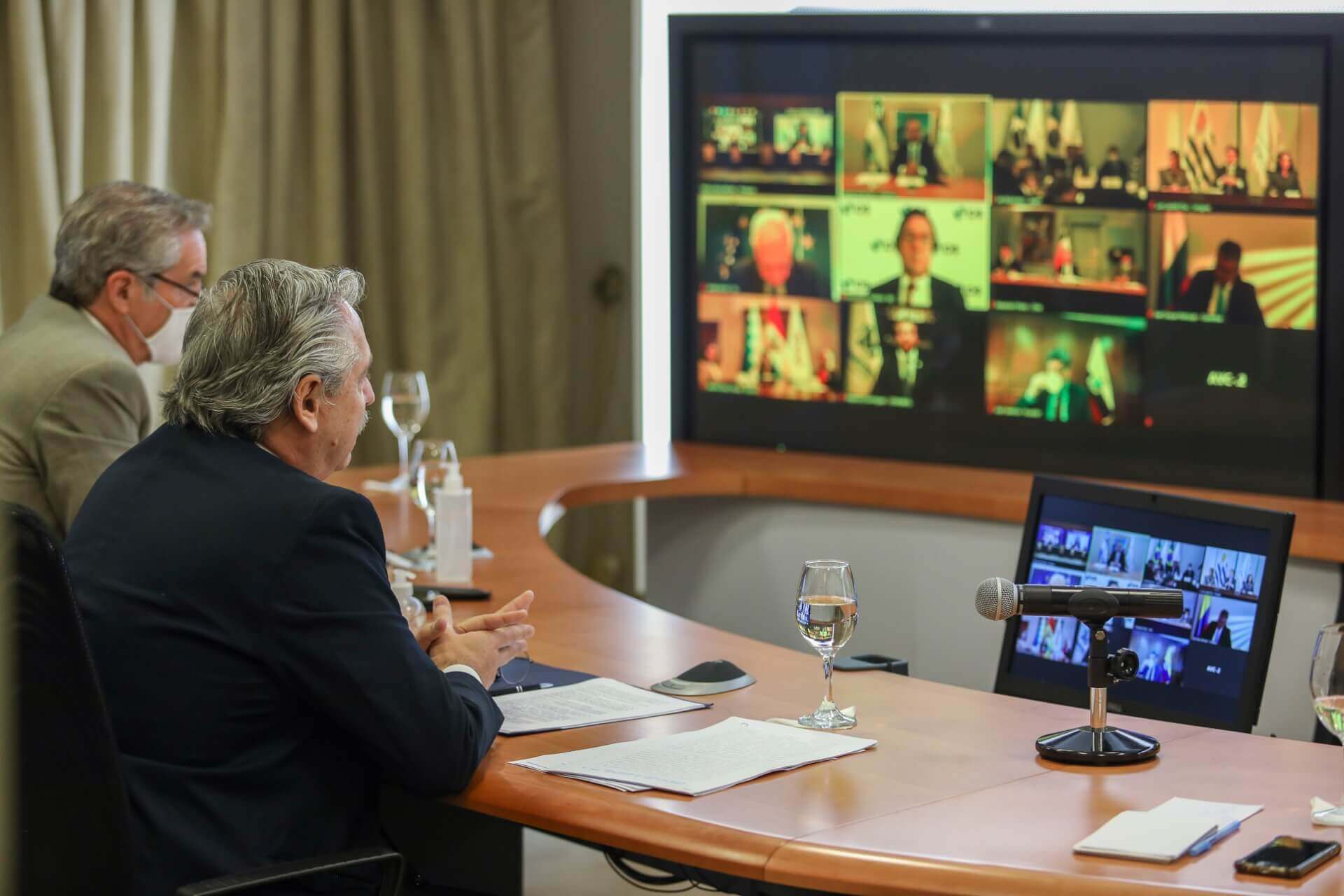Last week, South American heads of states backed Argentina’s claims over the Falkland Islands, which the latter calls the Malvinas, during the 56th Heads of State summit of Mercosur, a continental trade bloc.
The bloc’s declaration was supported by the governments of Argentina, Brazil, Paraguay, and Uruguay, and also by associate members Bolivia, Chile, and Colombia. The declaration reaffirms the Malvinas Islands Declaration, which was signed in 1996. Accordingly, item 32 of the declaration that was drafted last Thursday once again lends Mercosur’s support to the “legitimate rights of Argentina in the sovereignty dispute referred to the Malvinas Islands Question”.
Mercosur also noted the “prolonged sovereignty dispute” between Argentina and the United Kingdom (UK) over the “Malvinas, South Georgia, South Sandwich Islands, and the adjoining maritime spaces”. The organization said that there is a “regional interest” in a “solution in conformity with the resolutions from the UN, Organization of American States, Mercosur, and other regional and multilateral forums”.
Argentina’s Secretariat for the Malvinas Islands, Antarctica and the South Atlantic, Daniel Filmus, thanked Mercosur for their “renewed support” on the matter, and thanked Argentina’s “brothers of the region” for calling on the UK to negotiate a solution to the issue in a manner that is consistent with UN resolutions.
In the past, the Organization of American States (OAS), which comprises of countries in North and South America, has also “requested the Governments of the Argentine Republic and the United Kingdom of Great Britain and Northern Ireland to resume negotiations in order to find, as soon as possible, a peaceful solution to the sovereignty dispute”. The UN, too, has called for a “negotiated settlement”. A UN commission has ruled the islands are within Argentinian waters. While Argentina has used the commission’s report to legitimize its claims to the islands, the report itself merely makes maritime demarcations of where the islands lie, not a determination of whom they belong to.
The Falkland Islands form an archipelago in the South Atlantic Ocean on the Patagonian Shelf and is technically a British overseas territory. The islands have internal self-governance, while the UK looks after their defense and foreign relations. While the islands have been settled by the French, the British, the Spanish, and the Argentines, Britain formally brought the islands under its control in 1833. However, Argentina contests these claims, saying that the islands came under Argentine control after it gained independence from Spain in 1816. In fact, the Argentinian military invaded the islands in 1982; although British administration was back in place just two months later after a brief war.
In a 2013 referendum on the political status of the Falkland Islands, residents were asked: “Do you wish the Falkland Islands to retain their current political status as an Overseas Territory of the United Kingdom?” The vast majority, or 99.80%, of Falklanders are in favor of remaining as a UK overseas territory. In fact, just 3 people voted no, while 1,513 people voted yes.
Mercosur Backs Argentina’s Claim Over Falkland Islands, Calls on UK to Negotiate
The organization delivered a declaration on the dispute during a presidential summit.
July 6, 2020

IMAGE SOURCE: ARGENTINIAN PRESIDENCY
